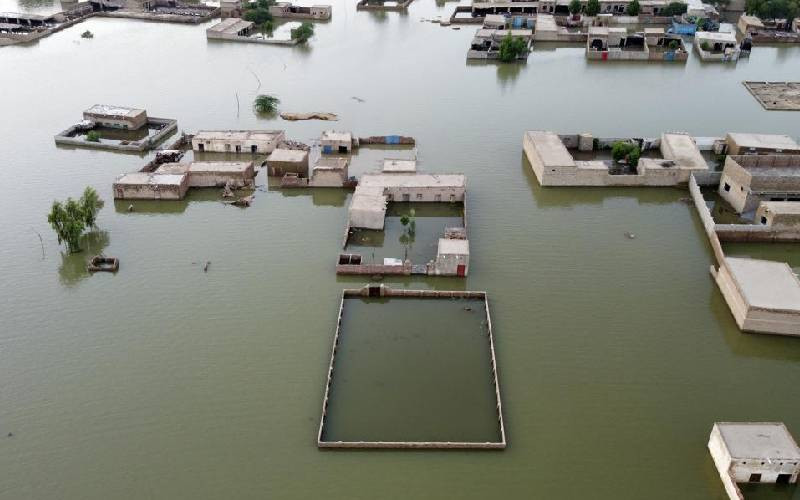
Planes carrying fresh supplies are surging across a humanitarian air bridge to flood-ravaged Pakistan as the death toll surged past 1,200, officials said Friday, with families and children at special risk of disease and homelessness.
The ninth flight from the United Arab Emirates and the first from Uzbekistan were the latest to land in Islamabad overnight as a military-backed rescue operation elsewhere in the country reached more of the 3 million people affected by the disaster. Multiple officials blamed the unusual monsoon and flooding on climate change, including U.N. Secretary-General Antonio Guterres, who earlier this week called on the world to stop "sleepwalking" through the deadly crisis.